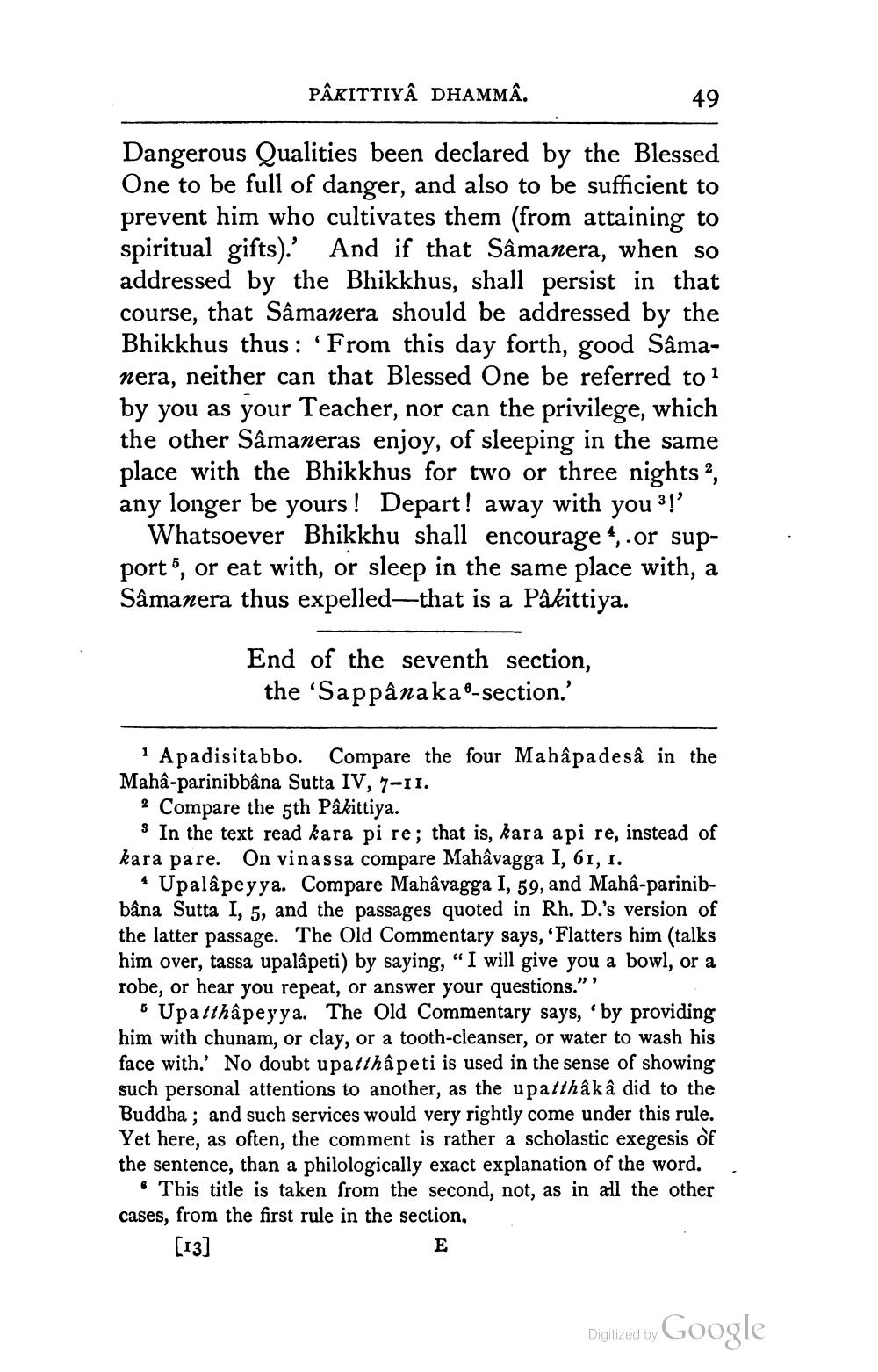________________
PÂKITTIYA DHAMMÂ.
49
Dangerous Qualities been declared by the Blessed One to be full of danger, and also to be sufficient to prevent him who cultivates them (from attaining to spiritual gifts).' And if that Sâmanera, when so addressed by the Bhikkhus, shall persist in that course, that Sâmanera should be addressed by the Bhikkhus thus: 'From this day forth, good Sâmanera, neither can that Blessed One be referred to 1 by you as your Teacher, nor can the privilege, which the other Sâmaneras enjoy, of sleeping in the same place with the Bhikkhus for two or three nights 2, any longer be yours! Depart! away with you 3!'
Whatsoever Bhikkhu shall encourage *, .or support 5, or eat with, or sleep in the same place with, a Sâmanera thus expelled—that is a Pâkittiya.
End of the seventh section, the 'Sappânaka-section.'
1 Apadisitabbo. Compare the four Mahâpadesâ in the Mahâ-parinibbâna Sutta IV, 7-11.
2 Compare the 5th Pâkittiya.
3 In the text read kara pi re; that is, kara api re, instead of kara pare. On vinassa compare Mahâvagga I, 61, 1.
* Upalâpeyya. Compare Mahâvagga I, 59, and Mahâ-parinibbâna Sutta I, 5, and the passages quoted in Rh. D.'s version of the latter passage. The Old Commentary says, 'Flatters him (talks him over, tassa upalâpeti) by saying, “I will give you a bowl, or a robe, or hear you repeat, or answer your questions."
6 Upatthâpeyya. The Old Commentary says, 'by providing him with chunam, or clay, or a tooth-cleanser, or water to wash his face with,' No doubt upatthâpeti is used in the sense of showing such personal attentions to another, as the upatthâkâ did to the Buddha; and such services would very rightly come under this rule. Yet here, as often, the comment is rather a scholastic exegesis of the sentence, than a philologically exact explanation of the word.
. This title is taken from the second, not, as in all the other cases, from the first rule in the section,
[13]
Digitized by Google




